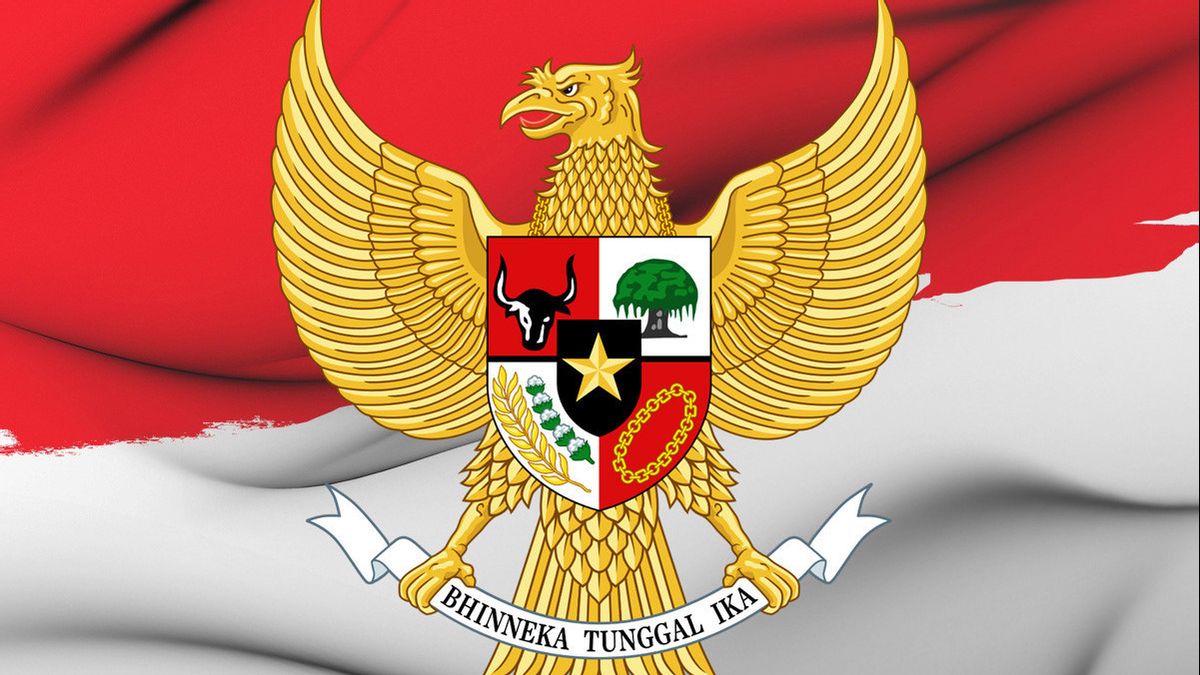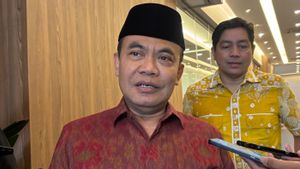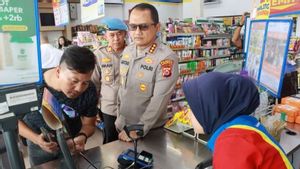YOGYAKARTA - Judging from the formula for the series of unity of each principle in Pancasila, it is related to ethical issues, particularly Pancasila political ethics, which are closely related to the second precept. Therefore, the formula for the series with the other four precepts is like this:
"Pancasila political ethics is a political act or behavior that is in line with just and civilized humanity, which has three legs, four legs crossed legs, fifth cross legs, and one cross legged."
As we understand it, issues related to ethics are related to issues of values. The postulate regarding the value of Pancasila Philosophy is the human essence of Pancasila. That is why the formula for the whole series of unified principles in Pancasila that intersect with Pancasila Political ethics begins with the second principle; Just and civilized humanity.
To decipher the formula into a clearer explanation, the understanding of Pancasila political ethics must be adjusted according to their needs. In other words, every precept in Pancasila must be described in general terms into a specific meaning. Along with this, what must be remembered is that every understanding of the precepts in Pancasila is qualified by the other four precepts.
Pancasila Political Ethics and Pancasila Political PhilosophyPancasila Political Ethics is a branch of the Pancasila political philosophy which views the good and bad of an act and political behavior on the basis of the Pancasila Political Philosophy. As for the definition of the Political Philosophy of Pancasila, namely all the beliefs that the adherents struggle for in society, as a nation and as an Indonesian state based on Pancasila.
Ethical Values in PancasilaAs we understand it, ethics certainly helps humans in determining what action needs to be done and why it should be done. Pancasila as the basis of the state is an ethic for the Indonesian people in carrying out the life of the nation and state. While the ethical values that we can find in Pancasila are manifested in the following order:
The social order has basic values such as the prohibition of the exploitation of fellow human beings. Everyone is obliged to be humane and also socially just. The state order has the basic values of being independent, sovereign, united, just and prosperous. The foreign order has the values of world order, eternal peace, independence and social justice. Regional government structures with deliberative values that recognize the origin or background of regional privileges. Religious life arrangements with freedom of worship in accordance with their respective beliefs. State defense order, the rights and obligations of citizens to defend the country. Educational arrangements, with the aim of educating the nation's life. Union order, get together and express opinions. The rule of law and participation in government, and the order of social welfare with the basic value of prosperity for the whole society. Examples of the application of Pancasila political ethicsExamples of cases can be found in campaign activities which (should be) in accordance with Pancasila ethics. In a campaign, people can run their way, but must still adhere to the following principles:
Campaigning while upholding human values, for example by maintaining the security of other parties, not harming others, and maintaining good relations with others in order to remain harmonious, so that clashes will never occur. This is based on the 3rd precept. The regulations in campaigning activities must be obeyed, because obeying the provisions means providing safety for all of us. It is based on the 4th precept. Elections and campaigns have the ultimate goal of prosperity and welfare of life together. Therefore, it is best to avoid things that become obstacles to efforts towards common welfare. This step is based on the 5th precept. By realizing that all bad deeds in the name of an election or campaign will not be separated from the supervision of God Almighty. This is based on precept 1. The core political problems are, of course, not limited to problems of power. However, politics is about a set of beliefs in social life, as well as in the nation and state that are fought for by those who believe in it. That is the definition of "politics" scientifically. As for the non-scientific definition of "politics", that is, which has a principle of struggle to win power. They even tend to ignore human values, thus justifying any means to achieve goals.Follow other domestic and foreign news only on VOI.id, Time to Revolutionize the News!
The English, Chinese, Japanese, Arabic, and French versions are automatically generated by the AI. So there may still be inaccuracies in translating, please always see Indonesian as our main language. (system supported by DigitalSiber.id)













